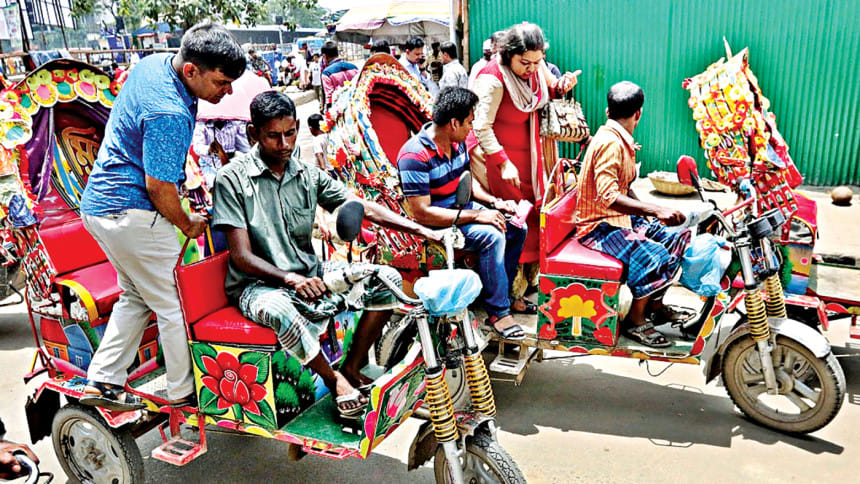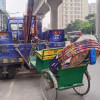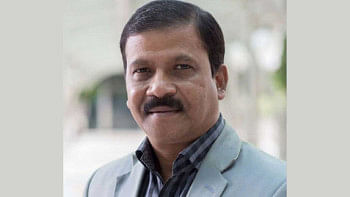Import duty on rickshaw batteries likely to rise

The government is expected to hike import duty on batteries, which in recent times have been used to run modified three-wheeler rickshaws, to discourage their use and contain the proliferation of the locally developed electric vehicle.
In the absence of specific safety and licensing rules and a lack of logistics required for seizing and sending such vehicles off to scrapyards, the number of battery-run rickshaws has mushroomed.
Currently, batteries exceeding 750 watts, typically ranging between 850 and 1,200 watts, are commonly used in these rickshaws thanks to a one percent customs duty on the battery.
The duty is quite low compared to the 15 percent import tariff imposed on batteries below 750 watts.
From fiscal year 2025-26, the customs duty on batteries of up to 1,200 watts is expected to go up to 20 percent, according to officials of the National Board of Revenue (NBR).
Professor Md Shamsul Hoque, director of the Accident Research Institute of the Bangladesh University of Engineering and Technology, said increasing the import duty would raise production costs and help reduce the number of vehicles.
He recommended a standard VAT on batteries and motors to curb the rise of such three-wheeler rickshaws.
Bangladesh has around 14 lakh battery-powered rickshaws, creating tens of thousands of jobs, according to a study by the Coastal Livelihood and Environmental Action Network (CLEAN).
Most of these are locally made using local and imported technologies. These three-wheelers, the cheapest mode of transportation due to their low energy costs, serve around 2.5 crore people daily for short-distance commutes.
Hoque said the present and past governments were to blame for the rise in the number of such vehicles.
Officials concerned lacked knowledge about such transportation, and they failed to address the issue in the initial period, leading to a significant workforce now becoming dependent on it, he said.
"Those in the government who were involved in magnifying this problem, those who gave registration approvals — they now need to be held accountable," he said.
Khondaker Golam Moazzem, research director at the Centre for Policy Dialogue, said battery-run rickshaws have significantly improved transportation for low-income groups.
He cautioned that increasing duties on batteries would burden users dependent on them and discourage investment, despite the high number of rickshaws in Dhaka.
Moazzem pointed out that taxation alone cannot stop more of such vehicles from plying the roads, as it would limit future purchases and battery replacements but leave existing vehicles unaffected.
He called for a comprehensive government policy for battery-run three-wheeler rickshaws, detailing safety standards, vehicle specifications, designated routes, and proper licensing.
He also advocated for a robust regulatory framework encompassing driver training, road usage rules, and environmental safeguards.
"Addressing legal, policy, and operational gaps is crucial, as short-term fiscal measures will not resolve issues like road safety or traffic congestion," he said.
"Importantly, auto-rickshaws should not be scapegoated for urban traffic congestion, which is also heavily influenced by private vehicles. Singling them out will not yield sustainable improvements," he said.

 For all latest news, follow The Daily Star's Google News channel.
For all latest news, follow The Daily Star's Google News channel. 





Comments